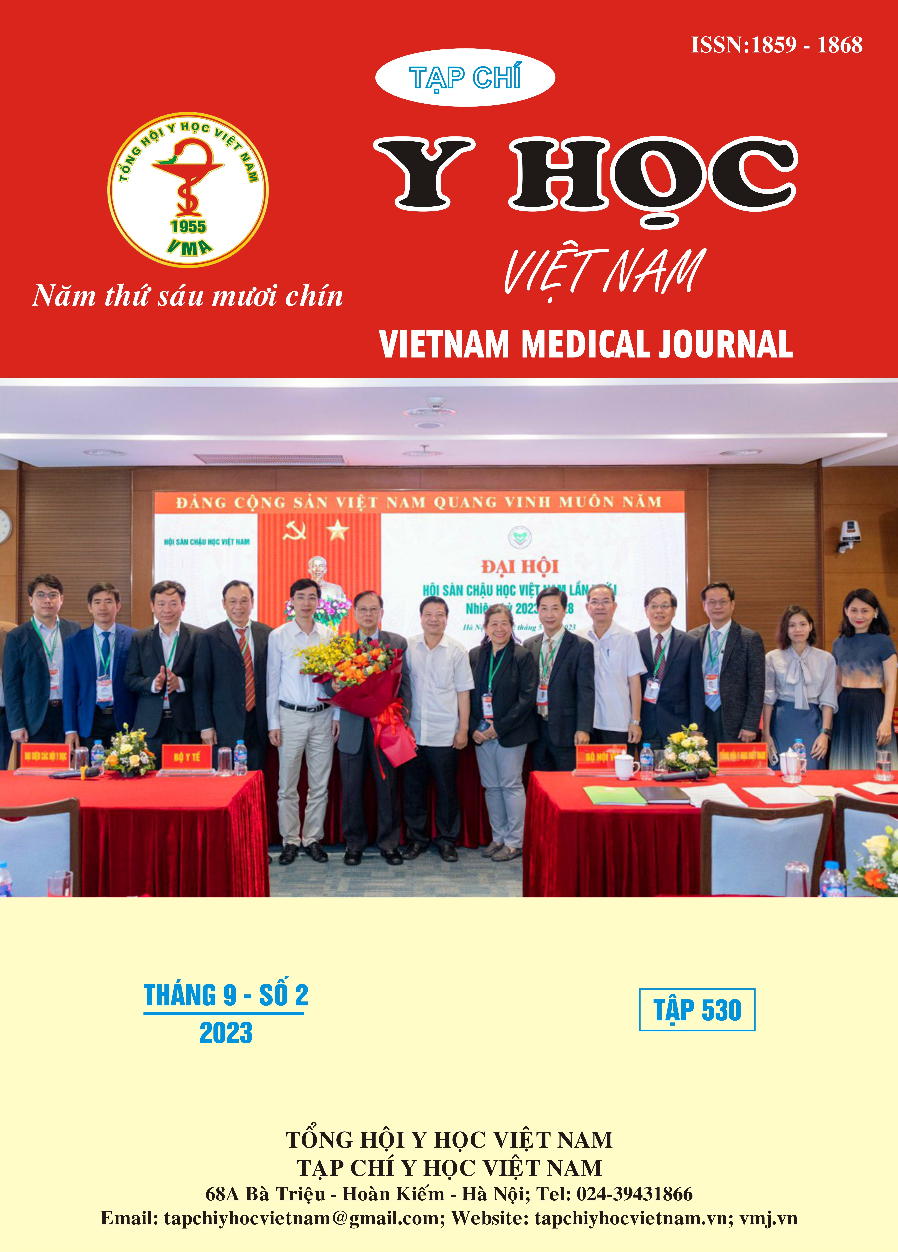RISK FACTORS FOR TREATMENT FAILURE IN PATIENTS WITH METHICILLIN-RESISTANT STAPHYLOCOCCAL NOSOCOMIAL PNEUMONIA
Main Article Content
Abstract
Objective: To determine the risk factors leading to treatment failure of nosocomial pneumonia (NP) due to methicillin-resistant Staphylococcus spp.. Methods: We conducted a prospective, cross-sectional descriptive study with 208 patients with NP due to methicillin-resistant Staphylococcus spp. infection who were treated at the Pulmonary department of Cho Ray Hospital from March 2021 to March 2023. Results: We collected 92 patients who definitely diagnosed with methicillin-resistant staphylococcal nosocomial pneumonia. Among them, had 54 (58.7%) successful treatment, 38 (41.3%) unsuccessful treatment. There was a significant difference between the unsuccessful treatment group and the successful treatment group in the following factors: mean age (58.5 ± 18.5 vs 64.1 ± 12.1), severe NP (94.7% vs 74.1%), respiratory failure (94.7% vs 72.2%), sepsis (86.8% vs 33.3%), septic shock (76.3% vs 14.8%), mechanical ventilation (97.4% vs 25.9%), dialysis (50% vs 13%); with p < 0.05. Conclusion: NP due to methicillin-resistant staphylococcus spp. infection is associated with a high rate of treatment failure, and it is crucial to assess risk factors for treatment failure to treat and predict patients proactively.
Article Details
Keywords
Nosocomial pneumonia, methicillin-resistant Staphylococcus spp., unsuccessful treatment, risk factors.
References
2. Aston J L, Dortch MJ, Dossett LA, Creech CB, May AK. Risk Factors for Treatment Failure in Patients Receiving Vancomycin for Hospital-Acquired Methicillin-Resistant Staphylococcus aureus Pneumonia. Surgical Infection. 2010; 11(1): 21–28. doi:10.1089/sur.2008.100.
3. Jeffres MN, Isakow W, Doherty JA, et al. Predictors of mortality for methicillin-resistant Staphylococcus aureus health-careassociated pneumonia: Specific evaluation of vancomycin pharmacokinetic indices. Chest. 2006;130:947–955.
4. Kalil CA, Metersky M, Klompas M, Muscedere J. Management of Adults With Hospital-acquired and Ventilator-associated Pneumonia: Clinical Practice Guidelines by the Infectious Diseases Society of America and the American Thoracic Society. Clinical Infectious Diseases.2016; 63:e61. doi:10.1093/cid/ciw353.
5. Meyer E, Schwab F, Gastmeier P. Nosocomial methicillin resistant Staphylococcus aureus pneumonia - epidemiology and trends based on data of a network of 586 German ICUs (2005-2009). Eur J Med Res. 2010; 15(12):514-24. doi: 10.1186/2047-783x-15-12-514.
6. Sakamoto Y, Yamauchi Y, Jo T, et al. In-hospital mortality associated with community-acquired pneumonia due to methicillin-resistant Staphylococcus aureus: a matched-pair cohort study. BMC Pulm Med. 2021; 21: 345. https://doi.org/10.1186/s12890-021-01713-1
7. Shorr AF, Combes A, Kollef MH, Chastre J. Methicillinresistant Staphylococcus aureus prolongs intensive care unit stay in ventilator-associated pneumonia, despite initially appropriate antibiotic therapy. Crit Care Med. 2006;34:700– 706.
8. Yang CC, Sy CL, Huang YC, Shie SS, Shu JC, Hsieh PH, Hsiao CH, Chen CJ. Risk factors of treatment failure and 30-day mortality in patients with bacteremia due to MRSA with reduced vancomycin susceptibility. Sci Rep. 2018; 8(1):7868. doi: 10.1038/s41598-018-26277-9.


